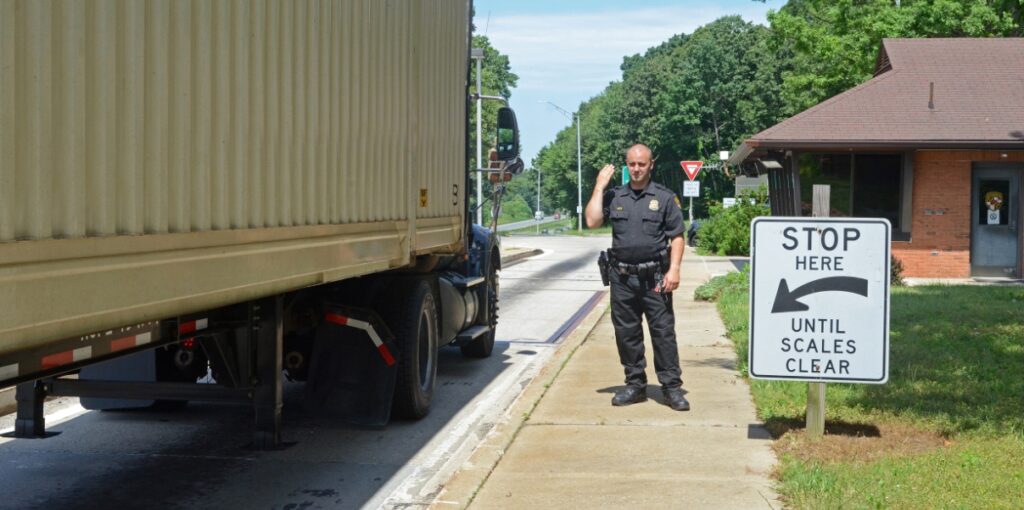There are a number of new regulations coming soon that have the potential to hit the trucking industry hard. Individually, each regulation may not move the needle much, but combined, they could turn the trucking environment from one of excess capacity to situation where trucks are hard to find.
DAT load boards are the largest and most trusted digital marketplace for truckload freight.

1. AOBRD to ELD switchover may reduce productivity
(Implementation date: Dec. 17, 2019)
The regulation requiring Electronic Logging Devices (ELDs) for tracking a driver’s hours of service (HOS) took effect on Dec. 17, 2017. However, trucks using the older Automatic Onboard Recording Devices (AOBRDs) were given 2 more years to switch over to ELDs.
While few expect the switchover to be as disruptive as the ELD mandate in 2017, it could be enough to decrease productivity and tighten capacity, especially because it hits at one of the busiest times of the year for freight. The December 2017 mandate contributed to a spike in rates, which stayed elevated throughout 2018.
Carriers using AOBRDs are more likely to be the larger carriers, so that’s a lot of trucks. And those who wait till the last minute to switch may encounter glitches running new software or hardware. According to John Seidl, Vice President of Risk Services for Reliance Partners and a former FMCSA investigator, the biggest challenge is training drivers properly in the use of ELDs so carriers can avoid hits to their CSA scores.
RELATED: AOBRD vs. ELD: Will the switch-over jumpstart rates?
2. IMO 2020 could cause a spike in diesel prices
(Implementation date: Jan. 1, 2020)
Starting Jan. 1, 2020 ocean vessels are required to switch to ultra low sulfur fuels. The distillate used to create these fuels is the same that is used for diesel fuel. That means that distillates normally dedicated to diesel will be diverted to marine fuels. According to current estimates, this could cause diesel prices to spike 25 cents per gallon or more.
Besides labor costs, fuel is the second biggest expense for a carrier, and a sudden sharp rise in diesel prices could drive some carriers out of business. A report issued this past summer by FreightWaves and Michigan State University professor Jason Miller examined 30 years of truck failure data. The report noted: “The biggest surprise to most outside of trucking industry professionals would be that failures are not primarily caused by spot and contract rates falling steeply in a recession. Instead, failures are primarily due to huge spikes in diesel prices that smaller carriers cannot pass on.”
DAT has freight rate averages on more than 65,000 point-to-point lanes. Learn more.
3. Drug and Alcohol Clearinghouse will weed out drivers
(Implementation date: Jan. 6, 2020)
Beginning Jan. 6, 2020, trucking companies are required to use the FMCSA’s Drug and Alcohol Clearinghouse, a new online database that gives employers access to information about CDL driver drug and alcohol violations. Currently, a driver who is fired from a job for drug use can often obtain a job with a different carrier in a different state. The clearinghouse is intended to prevent that by making it easier to identify drivers with prior violations.
The clearinghouse could weed out even more drivers if the FMCSA decides to permit hair follicle testing as an acceptable alternative to urine testing. Urine samples can detect drug use in the past few days, but hair follicle testing can detect drugs for up to 2-3 months. In June, the Trucking Alliance testified to Congress that they estimate that more than 300,000 CDL holders would either fail or refuse to take a hair analysis test. That would dramatically reduce the number of qualified drivers.
RELATED: Drug-Alcohol Clearinghouse: Employer asset or capacity killer?
4. New overtime laws will lead to higher labor costs
(Implementation date: Jan. 1, 2020)
New overtime rules take effect in 2020, which the U.S.Department of Labor says will make an additional 1.3 million Americans newly eligible for overtime pay.
While the new rules likely won’t be an issue for most truck drivers, who are paid by the mile, they may affect both carriers and brokerages with back-office staff. The new rules increase the salary threshold for employees to be exempt from overtime, rising from the current $23,660 to $35,568.
In addition, only 10% of commissions and bonuses can be counted as part of an employee’s salary. For example, if an employee earns $20,000 in salary and $30,000 in commissions, the employer would only be able to count $23,000 as the employee’s salary and would therefore be required to pay overtime.
RELATED: Prepare now for new overtime rules
5. New California law limits use of independent contractors
(Implementation date: Jan. 1, 2020)
In the trucking industry, it’s common for carriers to “lease on” owner-operators as independent contractors and brokers to take on “agents” as independent contractors. That practice will be severely curtailed in California with the implementation of Assembly Bill 5, which starts Jan. 1, 2020.
AB5 states that workers must meet three criteria to be classified as independent contractors, commonly referred to as the “ABC test.”
A. The worker must be free from control and direction of the hiring entity.
B. The work performed must be outside the usual course of the hiring entity’s business.
C. The worker must be engaged in an independently established trade, occupation or business.
That second requirement is virtually impossible for a trucking company to meet because driving trucks is part of a trucking company’s core business. News outlets have reported that trucking companies are sending out notices to their California-based leased-on drivers notifying them they have a few choices, including becoming a company driver, getting their own operating authority, or moving out of California.
RELATED: End of owner-operators in California?
Want to stay on top of regulatory developments? Sign up for DAT’s Industry News newsletter.


